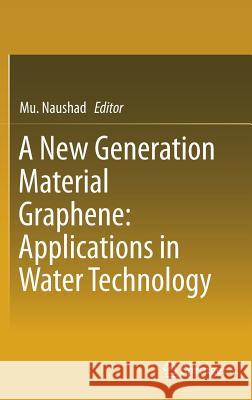A New Generation Material Graphene: Applications in Water Technology » książka
topmenu
A New Generation Material Graphene: Applications in Water Technology
ISBN-13: 9783319754833 / Angielski / Twarda / 2018 / 471 str.
Kategorie:
Kategorie BISAC:
Wydawca:
Springer
Język:
Angielski
ISBN-13:
9783319754833
Rok wydania:
2018
Wydanie:
2019
Ilość stron:
471
Waga:
0.85 kg
Wymiary:
23.39 x 15.6 x 2.69
Oprawa:
Twarda
Wolumenów:
01
Dodatkowe informacje:
Wydanie ilustrowane











